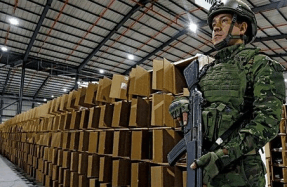
SASCHA ROTH FIGURED THAT WHEN have cancer in your colon and lymph nodes and your oncologist calls you after business hours, two days before you’re scheduled to begin a brutal five-week course of radiation therapy, it’s probably not good news—especially when the first thing she says is, “Are you sitting down?”
Roth was the first patient that enrolled into a clinical trial to test a new immunotherapy drug, designed to unleash the body’s natural immune response on the tumor cells, on patients with early stage cancers. The results were miraculous: One hundred percent of the patients went into total remission—perhaps the first time that’s ever happened in any cancer clinical trial, according to Luis Diaz, head of the division of solid tumor oncology in Memorial Sloan Kettering’s Department of Medicine and a designer of the trial. The trial suggested the new therapies, if delivered early enough, might not only obviate the need for traditional therapies notorious for their brutal side effects, like chemo, radiation and surgery. They could potentially cure the disease altogether.
Roth’s doctor was jubilant: “We’ve reviewed all your scans, biopsies—everything,” she says the doctor told her. “There is zero sign of cancer. We can’t radiate you knowing there’s no cancer in your body.”
The trial, published last year in The New England Journal of Medicine, electrified the field of cancer research and held out the promise of a powerful new approach that might help relieve many people from the suffering and anxiety caused by a scourge that kills 610,000 people each year in the U.S.
So far, it’s only a promise. Despite the success of Roth’s and subsequent trials, immunotherapy only works for about one patient in five who receive it. Doctors, furthermore, have no way of telling any particular patient if immunotherapy will work—there’s no way of foreseeing which patients will respond and which won’t (though some cancers respond better than others).
In recent months, the initial post-breakthroughop-timism has yielded to that old familiar feeling among cancer researchers: frustration. In the long fight against the disease, some oncologists have often felt that they are playing checkers while cancer, with its shapeshifting, mutational superpowers, is, as one prominent cancer researcher put it, playing “three-dimensional chess.” In this sense, last year’s trial is a tantalizing glimpse of what the future could look like—and a stark reminder of just how much further medicine has to go to make this future a reality.
Many oncologists point out that there is much cause to be optimistic. New imaging technology has recently begun to give scientists precise data






